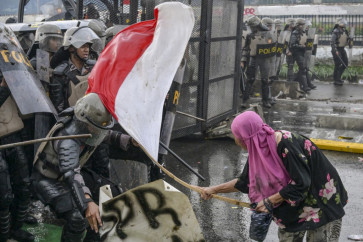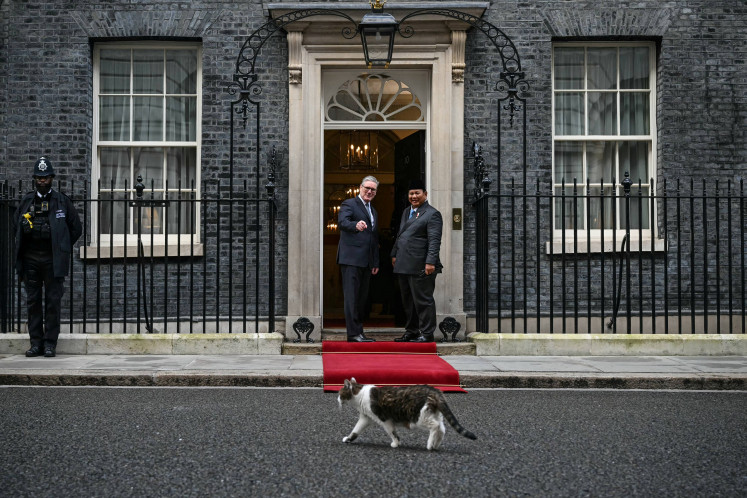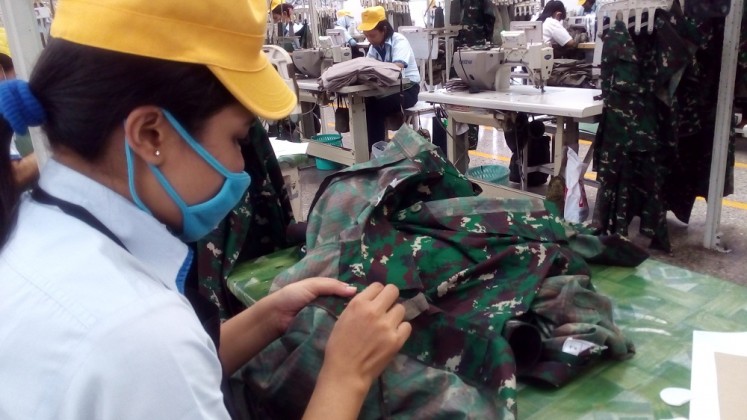Popular Reads
Top Results
Can't find what you're looking for?
View all search resultsPopular Reads
Top Results
Can't find what you're looking for?
View all search resultsFarmers, public told to be alert to bird flu threat
A senior government official asked the island's poultry farmers and residents to be even more alert for Avian Influenza (AI) as the island would soon enter the rainy season during which influenza usually occurs
Change text size
Gift Premium Articles
to Anyone
A senior government official asked the island's poultry farmers and residents to be even more alert for Avian Influenza (AI) as the island would soon enter the rainy season during which influenza usually occurs.
"Avian Influenza (AI) on the island is currently under control. However we ask the poultry farmers and the general public to be more vigilant because we will soon be entering the rainy season," head of Bali's Animal Husbandry Agency, IB Ketut Alit said earlier this week.
"The rainy season is particularly prone to influenza outbreaks."
The increase in alertness level, Alit said, should be focused on early warning measures such as monitoring and reporting any initial signs of an outbreak.
From January to October 2008, the agency recorded only one case of an AI infection. It was detected and reported in March and involved five chickens from Bebandem village, Karangasem regency.
"The case illustrates the importance of an early warning system and public participation."
The local farmers at Bebandem's Pande Sari hamlet immediately notified the authorities when they discovered that several chickens had died suddenly without any apparent cause, he said.
"The early warning system implemented by the local farmers has enabled us to contain the disease. Such public participation is very critical in our effort to free the island from AI next year," he stressed.
The island has had its share of an AI nightmare. In 2004 more than 722 chickens and ducks were culled to prevent the spread of the deadly epidemic.
Following that drastic measure, the island's governor issued executive order No 44/2005 which prohibited traders and farmers from transporting any live poultry onto the island.
"This measure played a significant role in the island's success in controlling the disease because we were convinced that the AI virus entered the island from poultry brought into Bali from regions outside this province," Alit said.
The prohibition has had another positive impact, as it has given local farmers an opportunity to increase the number of poultry they raise. One of the farmers who has benefited from this policy is 44-year-old I Wayan Darma.
He sells his poultry to the island's largest poultry market in Galiran, Klungkung regency.
"My revenue doubled after the implementation of this prohibition policy," he said.
As the demand for live chickens increased and the supply decreased, the price naturally rose. The increasing price has encouraged many Balinese to start their own backyard chicken farms.
This phenomenon soon raised the flag for the island's Participatory Disease Surveillance and Response (PDSR), a team of experts tasked with identifying the disease and conducting rapid tests on any suspected sick poultry.
It is also responsible for mobilizing public participation in preventing the spread of the disease.
"We found out that the number of backyard farms, in which the chickens roam freely without the constraints provided by cages and nets, are increasing in rural as well as in urban areas," PDSR's coordinator Ni Wayan Sukanadi said.
Such farming practices were highly susceptible to AI infections, she warned.
"A large majority of reported AI infections in Bali occurred in this sort of setting, where the chickens were not kept inside a walled enclosure," she added.
To cope with this phenomenon, the 72-member team has increased the frequency of its field visits, working with the farmers to educate them on safer farming practices and training them to conduct early warning and reporting measures.
"I started to raise chickens again some five months ago. Hopefully my chickens will never fall prey to AI again," Komang Warsana said, a backyard farmer.
Warsana is the head of Kayehan hamlet in Dawan sub-district, Klungkung regency. Warsana culled 30 of his chickens due to AI infection in 2007.










